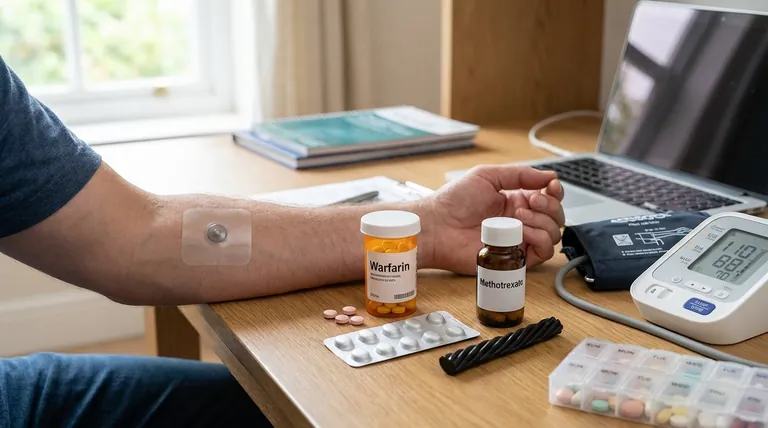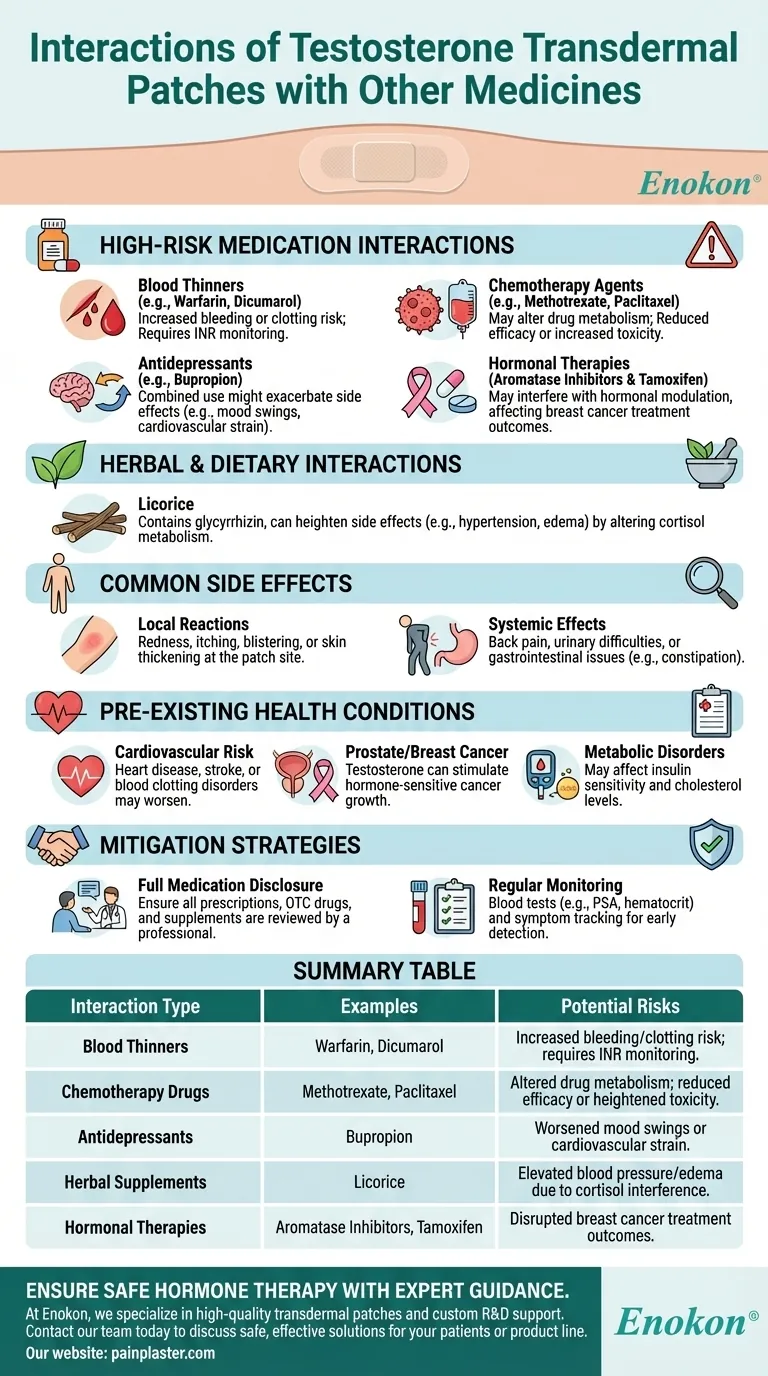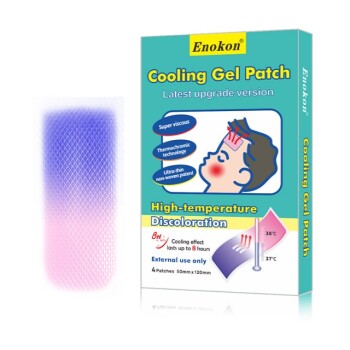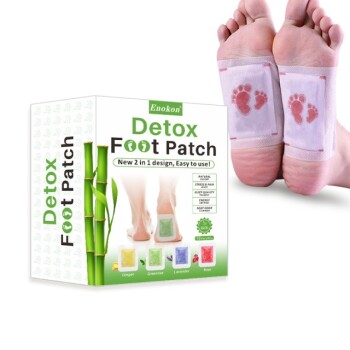Testosterone transdermal patches can interact with various medications, potentially altering their effectiveness or increasing side effects. Key interactions include blood thinners (e.g., warfarin), certain antidepressants (e.g., bupropion), and chemotherapy drugs (e.g., methotrexate). Additionally, combining the patch with licorice may heighten side effects. Common side effects involve skin irritation at the application site, while more serious interactions could affect blood clotting, prostate health, or metabolic conditions. Always disclose all medications and supplements to healthcare providers to mitigate risks.

Key Points Explained:
-
High-Risk Medication Interactions
- Blood Thinners (e.g., Warfarin, Anisindione, Dicumarol, Phenprocoumon): Testosterone can increase the risk of bleeding or clotting abnormalities, requiring close monitoring of INR levels.
- Chemotherapy Agents (e.g., Methotrexate, Paclitaxel): Testosterone may alter drug metabolism, potentially reducing efficacy or increasing toxicity.
- Antidepressants (e.g., Bupropion): Combined use might exacerbate side effects like mood swings or cardiovascular strain.
- Aromatase Inhibitors & Tamoxifen: Testosterone may interfere with their hormonal modulation, affecting breast cancer treatment outcomes.
-
Herbal & Dietary Interactions
- Licorice: Contains glycyrrhizin, which can potentiate testosterone’s side effects (e.g., hypertension, edema) by altering cortisol metabolism.
-
Common Side Effects
- Local Reactions: Redness, itching, blistering, or skin thickening at the patch site.
- Systemic Effects: Back pain, urinary difficulties, or gastrointestinal issues (e.g., constipation, black stools).
-
Pre-Existing Health Conditions
- Cardiovascular/Risk History: Heart disease, stroke, or blood clotting disorders may worsen due to testosterone’s impact on hematocrit and lipid levels.
- Prostate/Breast Cancer: Testosterone can stimulate hormone-sensitive cancer growth.
- Metabolic Disorders (e.g., Diabetes, Hyperlipidemia): Testosterone may affect insulin sensitivity and cholesterol levels.
-
Mitigation Strategies
- Full Medication Disclosure: Ensure all prescriptions, OTC drugs, and supplements (e.g., licorice) are reviewed by a pharmacist or doctor.
- Regular Monitoring: Blood tests (e.g., PSA, hematocrit) and symptom tracking for early detection of adverse effects.
For more details on testosterone transdermal patch interactions, visit Testosterone Transdermal Patch. Always consult healthcare providers to tailor therapy safely, especially for patients with complex medication regimens or chronic conditions.
Summary Table:
| Interaction Type | Examples | Potential Risks |
|---|---|---|
| Blood Thinners | Warfarin, Dicumarol | Increased bleeding/clotting risk; requires INR monitoring. |
| Chemotherapy Drugs | Methotrexate, Paclitaxel | Altered drug metabolism; reduced efficacy or heightened toxicity. |
| Antidepressants | Bupropion | Worsened mood swings or cardiovascular strain. |
| Herbal Supplements | Licorice | Elevated blood pressure/edema due to cortisol interference. |
| Hormonal Therapies | Aromatase Inhibitors, Tamoxifen | Disrupted breast cancer treatment outcomes. |
Ensure Safe Hormone Therapy with Expert Guidance
Navigating testosterone transdermal patch interactions requires precision. At Enokon, we specialize in manufacturing high-quality transdermal patches and pain plasters tailored for healthcare distributors and brands. Our technical expertise ensures reliable formulations, and we offer custom R&D support to address complex medication compatibility needs.
📞 Contact our team today (#ContactForm) to discuss safe, effective solutions for your patients or product line.
Visual Guide

Related Products
- Prostate Pain Kidney Health Care Patch for Men
- Far Infrared Heat Pain Relief Patches Transdermal Patches
- Medical Cooling Gel Patches for Fever Cooling Patches
- Menthol Gel Pain Relief Patch
- Icy Hot Menthol Medicine Pain Relief Patch
People Also Ask
- What precautions should be taken when applying testosterone patches? Maximize Safety and Effectiveness
- What should be done if a dose of testosterone patches is missed? Regain Stability and Safety
- What should patients tell their doctor before using testosterone patches? A Guide to Safe Treatment
- What should be done before undergoing an MRI while using testosterone patches? Remove it to prevent serious burns.
- What lifestyle factors should be considered when choosing between testosterone patches and injections? Find Your Best Fit


















